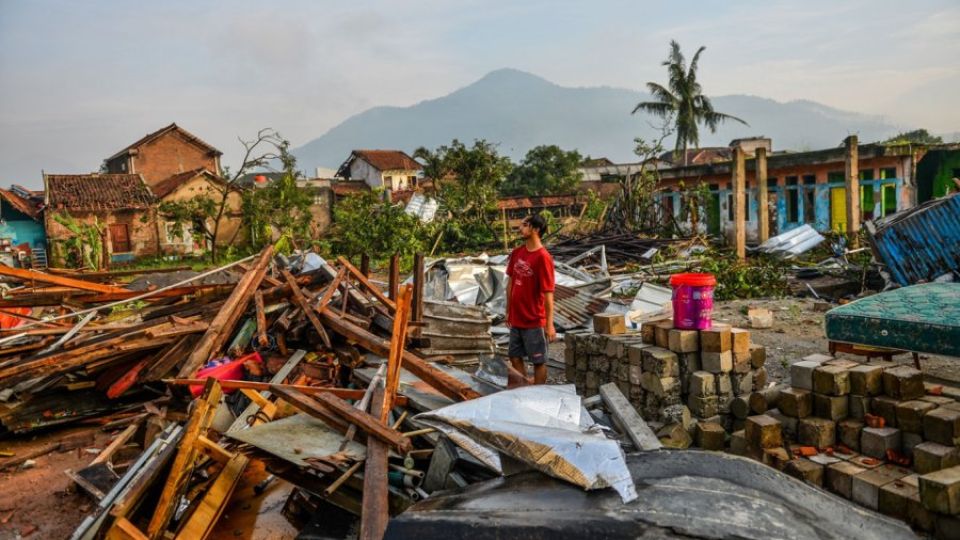February 28, 2024
JAKARTA – The Indonesia Ulema Council (MUI) has issued a fatwa urging the House of Representatives to fast-track legislation to mitigate the ongoing climate crisis.
The edict, formally called Fatwa No. 86/2023, outlines recommendations for addressing the impacts of the climate crisis through a regulatory approach. It was signed on Nov. 10 of last year but was only made public earlier this week.
“The legislature should prioritize the development of a law on climate change that incorporates principles and values of climate justice,” the fatwa stated.
While the edict is primarily aimed at the national legislature, it also calls on regional administrations to prioritize environmental protections and climate resilience when evaluating investment proposals.
A request for them to consider environmentally conscious spatial plans was also on the cards.
“Regional governments must conduct climate change awareness campaigns for all levels of society within their respective jurisdictions,” the fatwa said.
The MUI’s recommendations also extend to the business community, including a call for entrepreneurs to strictly adhere to licensing regulations, including provisions related to environmental impact assessments (EIAs).
Read also: West Java whirlwinds raise alarm over climate crisis
The climate crisis is becoming an increasingly pressing issue, with concerns rising about its impacts on highly biodiverse Indonesia.
According to Hayu Prabowo, the MUI’s division head for environment and natural resources, the fatwa was launched with the aim of preventing an all-out climate crisis. Hayu said climate change and global warming were of particular concern to the MUI. The issues have been linked to recent extreme weather events.
“Combating climate change requires collaborative efforts from various stakeholders, including the government and the public,” Hayu asserted in a statement issued on Friday.
The edict was issued following a year-long lobbying effort by representatives of environmental groups, including Khalisah Khalid, a coordinator of Greenpeace Indonesia’s political working group. She is also part of the Ummah for Earth, a faith-based climate advocacy group consisting of Muslim communities around the world.
The recent MUI edict, said Khalisah, could highlight the parallel between Islamic teachings on the environment and the need for climate crisis mitigation, making it an effective reference for schools and other forms of community learning.
She added that the fatwa could be considered Indonesia’s climate initiative as the country with world’s largest Muslim population, as Muslim-majority countries were statistically more vulnerable to the impacts of the crisis.
According to 2023 data from the International Rescue Committee (IRC), six of the 10 countries most at risk of climate disaster were Muslim-majority nations. These countries faced challenges ranging from extreme food insecurity and flash flooding to disease outbreaks.
“We have to involve Muslim leaders all over the world. Muslims all over the world must also participate and do their part,” Khalisah told The Jakarta Post, adding that structural changes on the policy-making level were crucial in facing the climate crisis.
Read also: Top Muslim leaders agree to raise environmental awareness
The MUI has, in the past, issued other fatwas related to climate crisis mitigation and adaptation, including one ruling deforestation and forest burning haram, as the body found that environmental destruction was prohibited under Islamic law.
Climate researchers have asserted that the global climate crisis is exacerbating extreme weather phenomena in Indonesia and that the country can expect to see disasters such as flooding, storms and whirlwinds at larger scales and more frequently.
National Research and Innovation Agency (BRIN) climatologist Erma Yulihastin cited the recent occurrence of what she said was Indonesia’s first full-fledged tornado in Rancaekek, West Java, as an example. She explained that in comparison, the typical whirlwind was a microscale phenomenon that lasted less than five minutes and was not always dangerous.
The Post contacted several members of House Commission IV overseeing environment, forestry and agriculture and Commission VII overseeing energy, research and innovation for comments but had not received responses as of the writing of this article.


